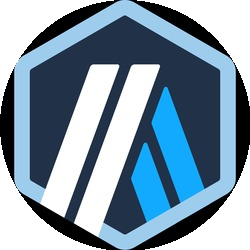Possible Challenges Ahead for Arbitrum’s Gaming Catalyst Program Amid Missed Deadlines and Calls for Funding Recall
ARB/USDT
$107,404,523.76
$0.1260 / $0.1173
Change: $0.008700 (7.42%)
-0.0012%
Shorts pay
Contents
- The recent scrutiny of Arbitrum’s Gaming Catalyst Program reflects broader challenges facing decentralized governance in the crypto space.
- This growing tension highlights the need for clear communication and accountability among DAOs, especially when substantial funds are involved.
- “It is unconscionable to continue to allow a 3/5 multisig hold $120M in ARB when they have failed to meet their agreed on oversight obligations,” stated Arbitrum DAO member Joseph Schiarizzi.
In light of recent developments within the Arbitrum DAO, this article examines the implications of the missed deadlines in the Gaming Catalyst Program and its effect on the overall Ethereum ecosystem.
Missed Deadlines Raise Concerns in Gaming Catalyst Program
The Arbitrum network, known for its innovative Layer 2 solutions, implemented the Gaming Catalyst Program (GCP) to foster growth within its gaming ecosystem. Initially passed in June 2023 with a 76% approval from the DAO members, the GCP set forth ambitious goals intended to elevate awareness and enhance participation among developers and users in the gaming sector. Despite the positive initial reception, the program has come under fire for failing to meet critical deadlines, which has ignited discussions about accountability in governance structures within blockchain domain.
Communication Breakdowns and the Need for Transparency
Since its inception, the GCP was supposed to initiate several integral actions, including electing permanent council members and issuing Requests for Proposals (RFPs) for infrastructure development. However, Arbitrum DAO member Joseph Schiarizzi has pointed out multiple missed deadlines, such as the lack of a dedicated program website and failure to open grant applications. This failure has raised serious questions regarding the program’s transparency and adherence to its own proposed timeline. As noted by Schiarizzi, the lack of updates—initially promised on a biweekly basis—has led to growing frustration within the community. Transparency in fund allocation is paramount, especially when over $215 million worth of ARB tokens was earmarked for the program.
DAO Response and Potential Recall of Funding
The gravity of these issues has led Schiarizzi to propose recalling the majority of the allocated funds, totaling 220 million ARB tokens, back to the Arbitrum DAO treasury. This move is seen as an attempt to urge accountability and increase transparency. Schiarizzi’s initiative aims not just to throttle funding but to ensure that the GCP adheres to its original commitments. “The ideal solution isn’t even that we pull all the funds back. The ideal solution is that the DAO gets the transparency it set out to achieve,” he stated, emphasizing the need for the program to realign with its obligations.
Defending the GCP: Complexity and Legal Challenges
In response to the mounting criticism, Steven Goldfeder, co-founder and CEO of Offchain Labs, has defended the progress of the GCP, attributing delays to the inherent complexities of establishing such a large-scale initiative with necessary oversight and legal frameworks. He acknowledged the challenges of navigating governance within decentralized networks and mentioned ongoing biweekly meetings aimed at maintaining program momentum. However, the perception of ineffective communication persists, suggesting a disconnect between the DAO’s expectations and the operational reality of the GCP.
Looking Ahead: The Future of Arbitrum’s Gaming Initiative
While setbacks have characterized the early stages of the GCP, there is a sense of cautious optimism about the program’s potential. Schiarizzi has expressed hope for rectifying the situation, stating that he will withdraw his funding recall if proactive measures to enhance transparency and accountability are implemented. The crypto community continues to watch how the GCP navigates these challenges, underscoring the importance of timely updates and effective governance in fostering long-term engagement and success within the decentralized ecosystem.
Conclusion
The ongoing deliberations surrounding the Arbitrum Gaming Catalyst Program serve as a critical case study in the governance of decentralized organizations. As the community strives for greater transparency and effectiveness, the lessons learned from the GCP may inform future protocols and programs within the broader crypto landscape. Ultimately, how the initiative responds to feedback and rising concerns will play a significant role in shaping the future of Arbitrum’s gaming ecosystem and its overall reputation within blockchain space.
